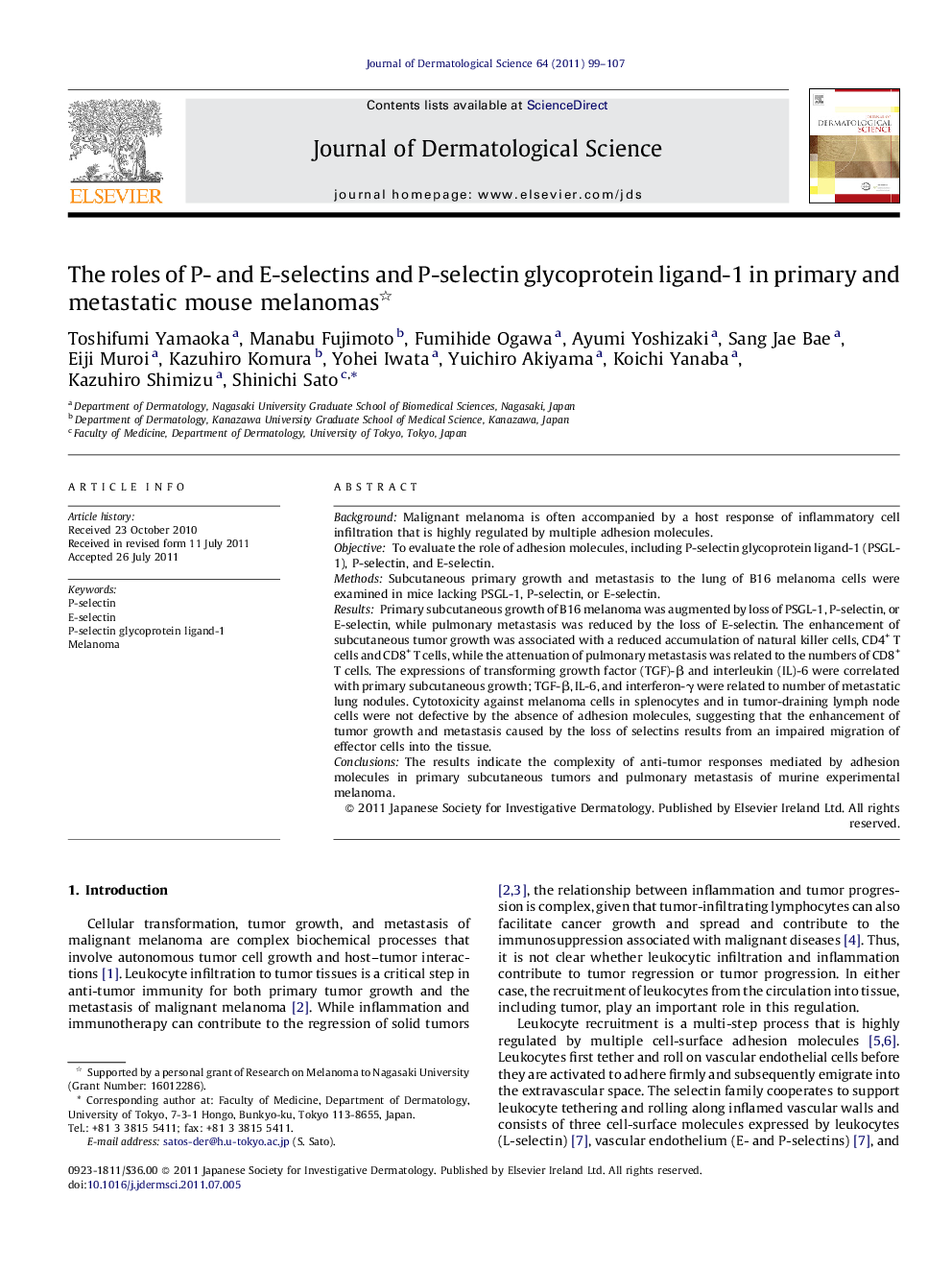| Article ID | Journal | Published Year | Pages | File Type |
|---|---|---|---|---|
| 3213419 | Journal of Dermatological Science | 2011 | 9 Pages |
BackgroundMalignant melanoma is often accompanied by a host response of inflammatory cell infiltration that is highly regulated by multiple adhesion molecules.ObjectiveTo evaluate the role of adhesion molecules, including P-selectin glycoprotein ligand-1 (PSGL-1), P-selectin, and E-selectin.MethodsSubcutaneous primary growth and metastasis to the lung of B16 melanoma cells were examined in mice lacking PSGL-1, P-selectin, or E-selectin.ResultsPrimary subcutaneous growth of B16 melanoma was augmented by loss of PSGL-1, P-selectin, or E-selectin, while pulmonary metastasis was reduced by the loss of E-selectin. The enhancement of subcutaneous tumor growth was associated with a reduced accumulation of natural killer cells, CD4+ T cells and CD8+ T cells, while the attenuation of pulmonary metastasis was related to the numbers of CD8+ T cells. The expressions of transforming growth factor (TGF)-β and interleukin (IL)-6 were correlated with primary subcutaneous growth; TGF-β, IL-6, and interferon-γ were related to number of metastatic lung nodules. Cytotoxicity against melanoma cells in splenocytes and in tumor-draining lymph node cells were not defective by the absence of adhesion molecules, suggesting that the enhancement of tumor growth and metastasis caused by the loss of selectins results from an impaired migration of effector cells into the tissue.ConclusionsThe results indicate the complexity of anti-tumor responses mediated by adhesion molecules in primary subcutaneous tumors and pulmonary metastasis of murine experimental melanoma.
